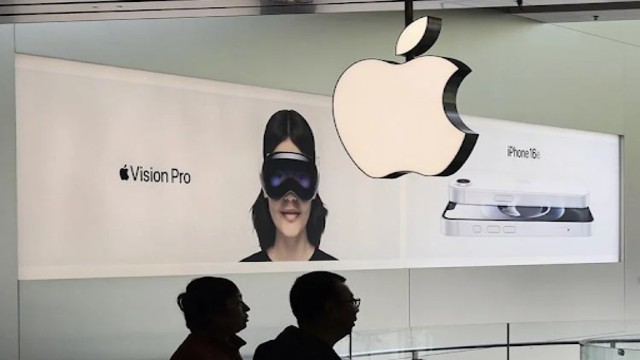
Commerce Secretary signals tough tech tariffs ahead for electronics and chip imports. AP Photo
The U.S. government’s decision to temporarily exempt electronics like smartphones and laptops from tariffs may not offer lasting relief. The announcement, made late Friday, initially appeared to benefit both consumers and tech giants, but officials quickly clarified that this move is not a permanent policy shift.
Electronics Tariff Exemption - A Temporary Pause, Not a Policy Change
U.S. Commerce Secretary Howard Lutnick, speaking on ABC’s This Week, explained that while these electronics are exempt from reciprocal tariffs for now, they will soon fall under a new category—semiconductor-specific tariffs. These are expected to roll out within the next couple of months.
President Donald Trump added to the uncertainty, posting on social media that the exemption doesn’t truly remove tariffs. He claimed the items are simply being moved to a different category and will still face a 20% tariff. This, he said, is part of the administration’s broader strategy to pressure China, particularly over fentanyl trafficking concerns.
Big Tech on Edge
The exemption was initially seen as a win for companies like Apple, Samsung, and Nvidia. It covered consumer electronics such as laptops, smartphones, hard drives, and flat-panel monitors. U.S. Customs and Border Protection confirmed these items would be spared from general tariffs on Chinese goods and a 10% baseline tariff on imports from other regions. However, machines used to manufacture semiconductors are still excluded.
Despite the short-term relief, tech analysts and investors remain cautious. Dan Ives of Wedbush Securities called the mixed messaging “dizzying,” highlighting the growing chaos companies face when planning supply chains and managing inventories.
White House: “Not an Exception”
Senior officials downplayed the idea that this was a favorable exemption. U.S. Trade Representative Jamieson Greer told Face the Nation that the move was a shift in classification, not a special exception. According to Greer, products have moved from reciprocal tariffs to a national security tariff regime, and no broad exemptions will be offered. “We can’t have a Swiss cheese solution,” he added.
China Responds Cautiously
China's commerce ministry called the temporary move a small, positive gesture but urged the U.S. to lift all remaining tariffs. The message underscored the ongoing trade tensions between the two global powers, even as individual tariff announcements provide fleeting hope for some sectors.
Market Reactions and Investor Jitters
The fluctuating policy signals have already impacted the market. Stocks of major tech companies—Apple, Microsoft, Nvidia, Amazon, Tesla, Alphabet, and Meta—collectively lost $2.1 trillion in value following Trump's April tariff announcement. Although some of those losses were recovered after a partial tariff pause, the sector remains highly volatile.
A Short-Lived Relief for the Tech Industry with Uncertainty
Some had hoped the exemption signaled a strategic shift by Trump, recognizing that pushing smartphone and laptop production back to the U.S. was unrealistic. Apple, for instance, has invested decades building a complex supply chain in China. Relocating that infrastructure could take years and significantly raise production costs—possibly tripling the price of an iPhone.
Apple has shown goodwill with its pledge to invest $500 billion and create 20,000 jobs in the U.S. over the next four years. But the administration’s unpredictable tariff strategy continues to cast a long shadow over the tech industry.
So far, Apple, Samsung, and Nvidia have declined to comment on the latest developments.















